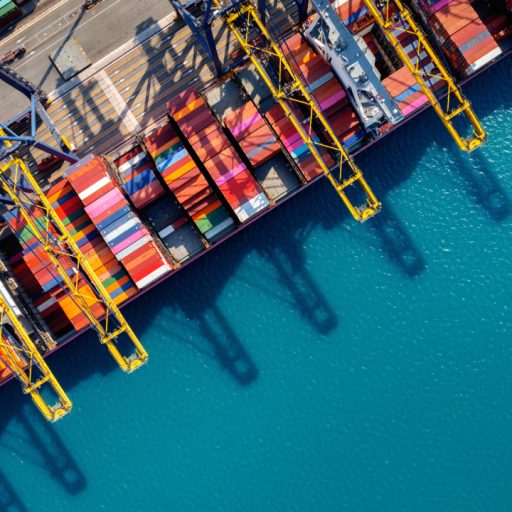
Artificial Intelligence in Port Logistics
Share:
We've dedicated quite a few posts to artificial intelligence on our blog, as we're aware of its growing importance and the assistance it can provide in the entrepreneurial ecosystem. But on this occasion we are going to focus on its use within the Port logistics sector. Indeed, this technology, which has emerged as a significant force in numerous sectors, has also made its way into the port industry, as we recently saw with the creation of BloxAssistant, a product byChainGO Tech that applies generative AI to logistics processes.
The application of artificial intelligence in port logistics has given rise to innovative solutions that address the challenges of the sector while creating opportunities to improve existing processes. At La Lonja de la Innovación, we can find some of these startups that have AI at the heart of their projects. The capability of this technology and the advances it is experiencing make it a great option for implementation in any sector.
Advantages of AI in port logistics
The advantages of applying artificial intelligence in port logistics to improve processes and tackle challenges are not few. Proof of this is the increasing emergence of startups with solutions based on this technology. Here are some of its benefits.
- Analysis of demand forecasting: AI has the ability to analyze large volumes of data and anticipate fluctuations in demand within port services, enabling the adaptation of other processes and actions. Furthermore, customer segmentation is more precise with the help of AI, facilitating the creation of more effective and specific marketing campaigns.
- Tracking of goods and vehicles. Combining AI with Optical Character Recognition (OCR) enables tracking of goods, making their traceability more efficient and secure.
- Planning and organizing work rhythms. Through the processing and analysis of data by artificial intelligence, it is possible to detect patterns in the logistics chain and create optimized plans for task organization, increasing efficiency and reducing wait times.
- Automated transfer. Adding robotics to AI facilitates intelligent and automated warehouse management, reducing potential human errors.
- Selection of smarter routes. AI allows for the analysis of routes to determine the most optimal based on weather, traffic, sea conditions, etc., improving port activity and contributing to emission reduction efforts.
- Accident prevention. AI helps generate alerts when it detects dangerous and unusual activities, improving port safety and cybersecurity.
- Sustainability and the environment. AI also significantly impacts sustainability and the environment. Thanks to process optimization and emission reduction, among other factors such as improved routing, port logistics become more environmentally friendly.
In conclusion, artificial intelligence is transforming management in this sector. However, undoubtedly, it will have an even greater impact in the coming years, as the potential of AI is enormous and we are only at the beginning of this revolution.



